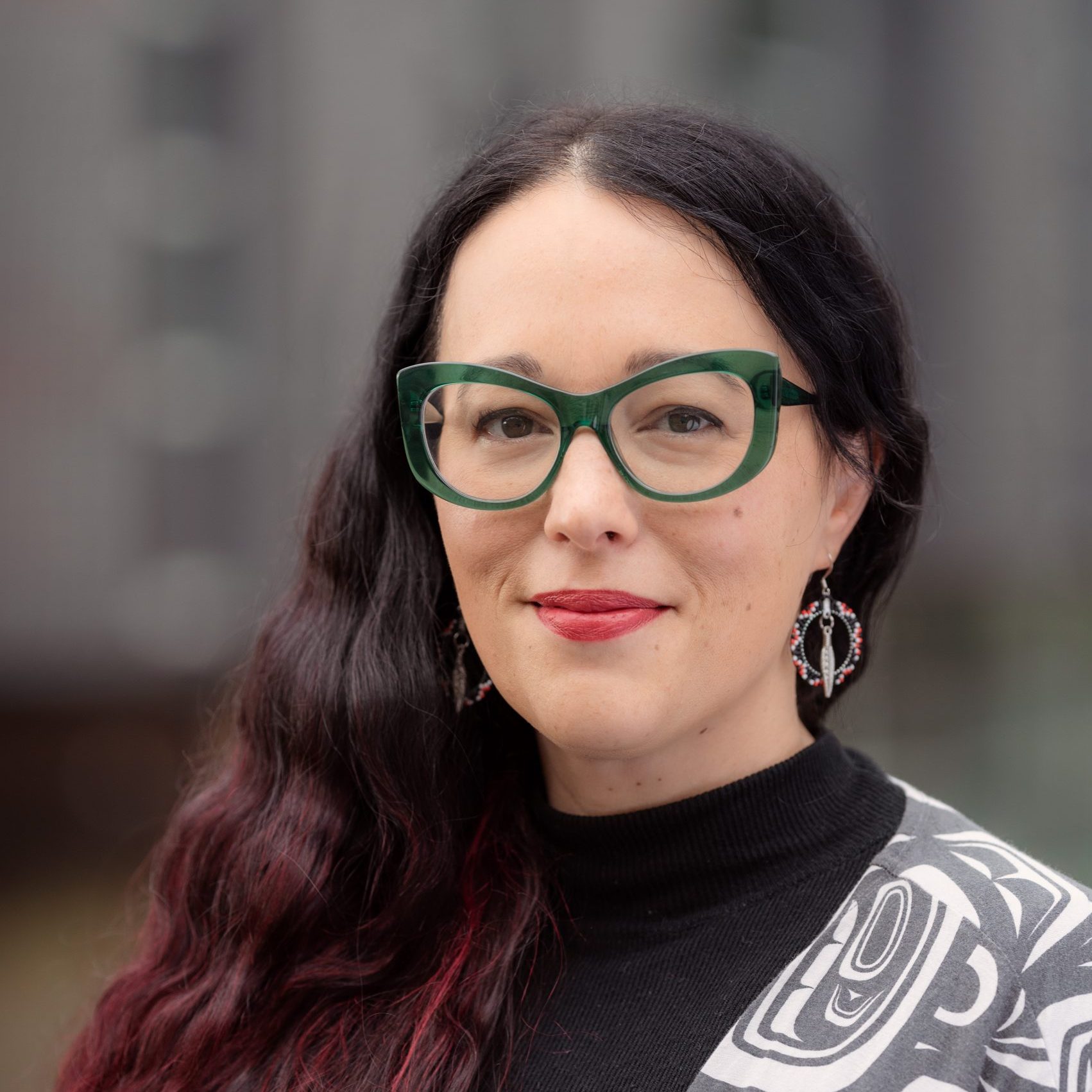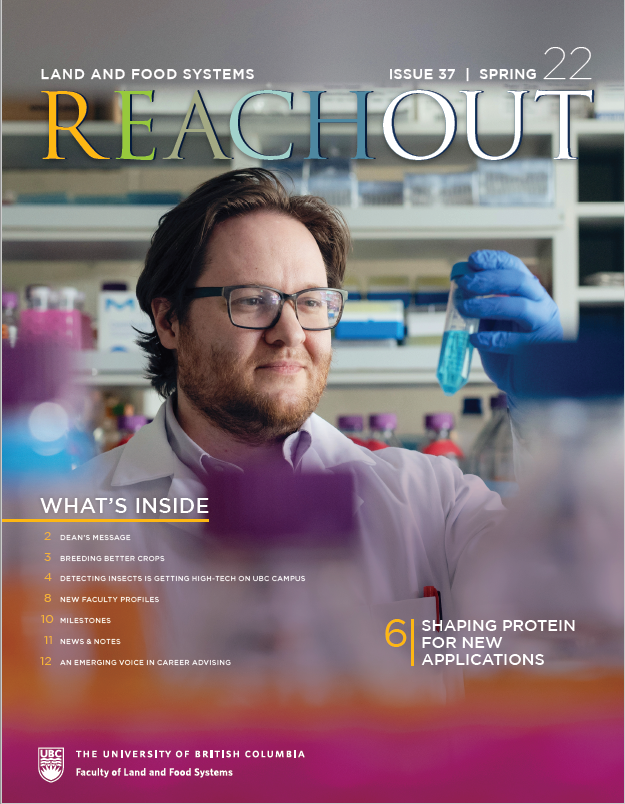New Faculty Profile: Jennifer Grenz

In January 2022, Assistant Professor Jennifer Grenz was cross-appointed in the faculties of Forestry and Land and Food Systems. Well-known in LFS for her popular weed science class, she completed her PhD in Integrated Studies in Land and Food Systems in 2020 under the supervision of Professor Carol McAusland. She also earned her BSc in Agroecology in 2004.
Grenz has expertise in food sovereignty, plant science, and the intersection of food systems and Indigenous issues. A Nlaka‘pamux woman of mixed ancestry, she has nearly two decades of experience in science communication, providing consulting services and on-the-ground management of invasive species for all government levels, and working with Indigenous communities on creating food security plans and land-healing initiatives.
Her research focuses on applying an Indigenous worldview to invasion biology and ecology, and understanding how that challenges us to think differently about our role in ecosystems management amid rapid climate change.
“My work is motivated by serving Indigenous communities to help reclaim, practice, and adapt traditional land stewardship practices to build and fortify our food systems for the two-legged and four,” she said.
Grenz strives to understand the legacy that invasive plants leave behind on the land and how it may impact plants important to Indigenous communities. She has started work meant to inform how to rebuild traditional food systems after significant wildfire events.
Grenz owes her love of weed science to Professor Emeritus Mahesh Upadhyaya. After taking his undergraduate course, she was hooked on weeds. “It completely changed my career path,” she said. “Mahesh has been instrumental in where I am today and I appreciate his mentorship. It has been an honour to continue teaching his weed science course.”
She is thrilled to work alongside Indigenous communities and help reshape, re-story, and redesign food systems, adapt to a changing climate, and ensure all relations are fed. In collaboration with Cowichan tribes, she designed a Webwork for Values-based Land Healing, a land management decision-making tool consistent with Indigenous ways of being, doing, and knowing. Based on circle-work, it focuses on aligning unsuspecting allies with their shared values so that the difficult work of balancing complex interests can begin.
“It allows us to create land healing stories for the future that then directs the research that is needed,” Grenz explained. “For me, it is important to never forget that there is no separation between people and land.”
Grenz is overjoyed to see Indigenous science provide the lens she believes has been missing from Western science. Her collaborators are primarily Indigenous communities, knowledge keepers, and prepared allies who bring needed expertise into projects. She is grateful for her colleagues at Agriculture and Agri-Food Canada working in weed and invasive plant science, and excited about new relationships within the Below Ground Ecosystem Group in UBC’s Faculty of Forestry.
